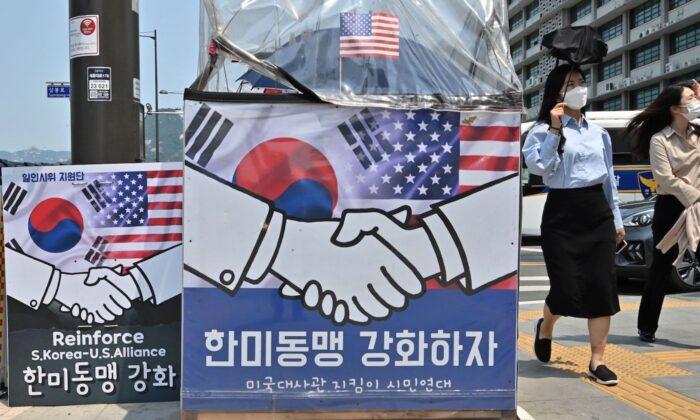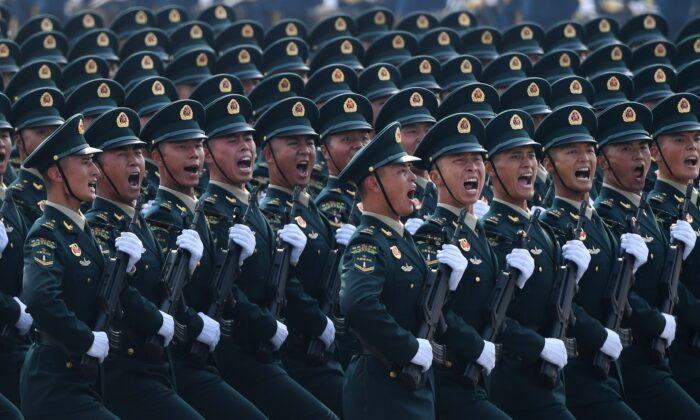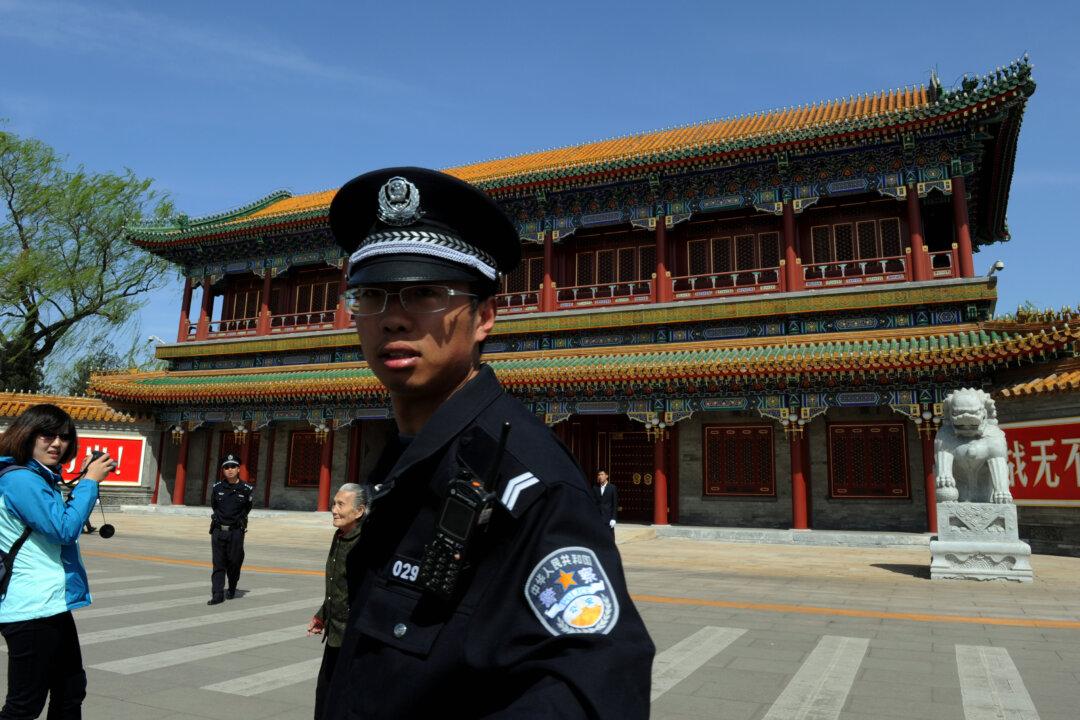The United States and China are seeking to strengthen their ties with South Korea’s new conservative government.
U.S. President Joe Biden lands in South Korea late Friday as part of a six-day trip that also includes Japan. Biden has of course, in advance, reaffirmed the need for a strong U.S.-South Korea alliance.
Meanwhile, Chinese diplomats are also trying to make inroads with the new administration led by political novice Yoon Suk-yeol.
Wang expressed during the meeting the yearning to “mutually promote the strategic partnership between China and South Korea.”

China has upped its diplomatic efforts with Wang leading a special delegation representing Xi for Yoon’s inauguration, according to official Chinese media.
The U.S. assigned a delegation led by Douglas Emhoff, husband of Vice President Kamala Harris, while Japan sent Foreign Minister Yoshimasa Hayashi.
The presence of a senior Chinese Communist Party (CCP) leader, such as Wang, at the inauguration is seen as a rarity especially with the pandemic breaking out, said the state-run media.
For decades, the CCP conventionally appointed officials at the level of vice-premier or state councilor to participate in South Korean presidential inaugurations.
For example, in 2013, then State Councilor Liu Yandong attended Park Geun-hye’s inauguration; in 2008, then State Councilor Tang Jiaxuan was present at Lee Myung-bak’s inauguration; and in 2003, then Vice Premier Qian Qichen was at Roh Moo-hyun’s presidential inauguration.
Li Jiacheng, an associate professor at Liaoning University’s Institute of International Economics and Political Science, is quoted in the article, as saying, this year marks the 3oth anniversary of the establishment of diplomatic relations between China and South Korea, and that China intends to anchor stable Sino-Korean relations.
As for the cause for China’s proactive measures towards South Korea’s new administration, the above-mentioned China Newsweekly article gave an explanation. It said that former South Korean President Moon Jae-in, since assuming the post in May 2017, “had been actively mending and developing Sino-South Korean relations, which had previously plummeted due to the country’s deployment of the THAAD anti-missile system.”
On March 7, 2017, days before Park Geun-hye stepped down due to being impeached, the U.S. military stated that it had begun deploying the THAAD missile defense system in South Korea in order to intercept North Korea’s missiles and maintain security on the Korean Peninsula, despite China’s long-standing opposition.
The China Newsweekly article stated that the Sino-Korean relationship is facing grave challenges in terms of political cooperation.

Strategic Role in Global Supply Chain
South Korea has long relied on the United States for security and on China for trade leaving it in a situation where it has strived to separate politics from business.But Washington’s escalating competition with Beijing on technology issues, along with shifting geopolitical prospects, has left South Korea in a delicate balancing game between its longtime ally and its largest trading partner.
In recent years, South Korea’s advanced semiconductor industry has experienced a surge in global demand.
US Enhances Alliance with South Korea
After winning the election, Yoon sent a delegation to the United States and as a response, U.S. President Joe Biden also scheduled his current visit to South Korea.
The spokesman, who spoke on condition of anonymity, said: “the U.S.-ROK alliance is the linchpin of peace, security, and prosperity in the Indo-Pacific”.
The spokesman added that the United States expects continued cooperation between both sides in addressing the most pressing global challenges.
U.S. Defense Department spokesman John Kirby also said he looks forward to working with the new South Korean government and said Korea remains a key U.S. ally.
Some analysts believe that Biden’s choice of visiting Korea before Japan during his current trip is a signal of the U.S. prioritizing ties with the new South Korean government.
But Biden is scheduled to hold a summit meeting with both Yoon and Japanese Prime Minister Fumio Kishida to discuss deepening security alliances, strengthening economic ties, and the issue of North Korea.





